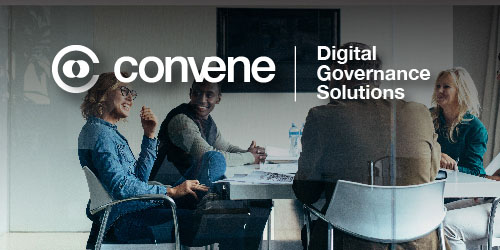A Chief Information Officer (CIO) is in charge of any technology an organisation employs. In the digital age, this role is more important than ever. The CIO is responsible for ensuring any software or hardware used by the company is efficient, reliable and cost-effective.
Why Have a CIO?
Having an effective IT infrastructure is crucial for any organisation in the modern age. The CIO is the member of the Senior Leadership Team who is responsible for maintaining this infrastructure. Their job involves various measures to ensure this core responsibility is met.
Many companies already have an IT manager. This is different from a CIO as the IT manager is more focused on the day-to-day operations of the IT system (such as if there is a short-term system outage). A CIO is more concerned with the overall strategy of the organisation, such as establishing effective internal processes.
What Are The Responsibilities of the CIO?
Part of the CIO’s role is in overseeing the adoption of new technologies. This means they have to stay on top of a constantly changing landscape and make decisions on which markets to invest in. One example of this is in data privacy software, as they will need to stay on top of evolving encryption standards.
This is also important for compliance reasons. The GDPR states that personal data must be protected to a reasonable standard, which means the CIO needs to play their part in ensuring the law is met. They should have a strong awareness of what this means in practice.
What Makes A Good CIO?
Needless to say, they must be proficient in modern technology and understand the demands of the organisation. It is generally expected that they will have a Bachelor’s degree in a computing-related subject.
Beyond this, a good CIO will have strong business skills. They should be flexible and ready to adapt to change. As mentioned, part of their role is staying on top of current trends. The digital sphere evolves quickly, and the role of the CIO will evolve with it. A quick-thinking CIO will be a benefit for the company.
They should also be able to communicate with the rest of the team. Many other executives do not have the same level of expertise, and so the CIO should be able to communicate clearly and effectively. The CIO may not deal with as many day-to-day challenges as the IT manager but they should still be a good leader who is well-versed in delegation.
How Can Convene Improve Your IT Infrastructure?
Convene is an award-winning Board Portal, designed to digitise and streamline your meeting processes from start-to-finish. Now available fully integrated Teams, our comprehensive software has numerous features to improve your meetings:
- A Document Library with role-based access to ensure that your sensitive documents are protected.
- A built-in audit trail so you can be sure you are compliant with all regulations.
- Integrated Video Conferencing so you can make the switch from remote to hybrid working seamlessly, whilst still viewing your Board Pack all on one screen.
- Surveys, with the option for anonymity, so you can be sure you are aware of your employees opinions.
- Accessibility features, including text-to-voice, which make us the leading accessible Board Portal.
If you’d like to learn more about how Convene’s range of features can help your organisation achieve better governance, don’t hesitate to book a demo today!








